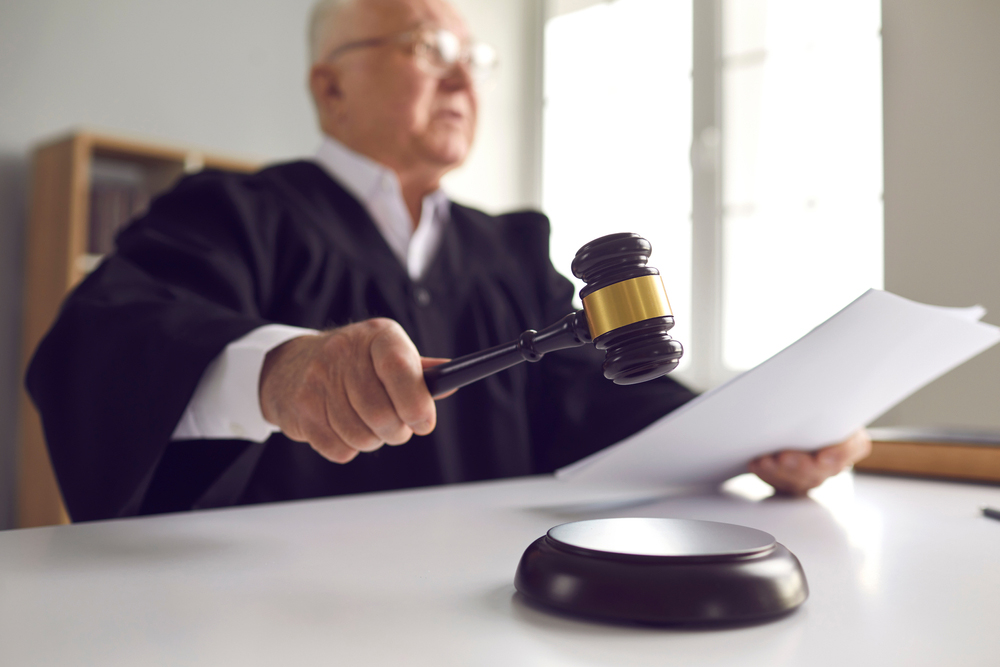Read the latest and greatest from our team
of incredible specialists.

Beach House Recovery Center » Blog » Court-Ordered Counseling in Florida
If your mental illness or substance use disorder has put your life or the lives of others at risk, a judge can intervene and order you to attend treatment. The goal of mandatory or court-ordered counseling is to provide people struggling with their well-being a chance to get their lives back on track.

In some circumstances involving minor offenses, a judge may opt to have someone with a mental illness or addiction issues attend court-ordered counseling as an alternative to spending time in jail. If court-ordered counseling is a requirement for staying out of prison and you don’t comply, you could find yourself in legal trouble.
Florida allows individuals with repeated hospitalizations and multiple criminal offenses to attend outpatient treatment programs under a court order. For you to receive outpatient treatment, a court must find that you would not be able to function in a community without supervision, have been repeatedly hospitalized or incarcerated and are unlikely to participate in treatment voluntarily.
If a judge orders you to seek counseling, it’s in your best interest to do so. Otherwise, they can find you in contempt of court or send you to an inpatient hospital if they believe you are mentally unstable.
In Florida, a law called the Baker Act allows doctors, mental health specialists, judges and law enforcement officials to commit someone to a treatment center for up to 72 hours if they display specific signs of mental illness. This 72-hour hold gives professionals enough time to complete a mental health evaluation and de-escalate a crisis.
To temporarily commit you to a mental hospital, you must meet the following criteria:
If your loved ones are worried about your well-being and feel a mandatory assessment is in your best interest, they have a couple of options. If you are showing symptoms of severe mental illness or threatening to hurt yourself or others, calling the police will immediately initiate the Baker Act process.
Alternatively, they could ask the court to have your mental health evaluated by filing a petition. In this case, they will need to provide a written statement that documents the details of your mental illness and the reasons they believe the Baker Act is necessary.
When addiction is the primary issue requiring professional help and you refuse to seek counseling, Florida also has a law called the Marchman Act that allows families to petition the court for involuntary substance abuse assessment and up to 60 days of rehabilitation.
If you are living with an addiction and an untreated mental health disorder, our accredited Florida residential treatment center is where you can start healing. Simultaneously treating both components of a dual diagnosis will allow you to address the underlying causes of both conditions, so you can find freedom and happiness. We offer a complete continuum of evidence-based therapies that will give you the tools to recover your mental, physical and spiritual well-being. Contact us today to learn more.
Whether you’re researching for yourself or a loved one, Beach House can help. We understand that this is a serious time in your life and that the treatment center you choose matters. We want you to feel comfortable and empowered to make the right decision for yourself, a friend, or a family member. This is why a counselor is waiting and available to answer your questions and help put your mind at ease regarding the next steps. Many of the staff at Beach House have walked in your shoes. If you feel you’re ready or want more information about how to help a loved one, we can help today. You can also learn why we are voted the #1 rehab for addiction treatment in Florida.
We accept most major insurance plans and can verify your benefits quickly and confidentially.
We’re committed to helping you access the care you need, our admissions counselors can guide you through your coverage options and available resources.





"*" indicates required fields